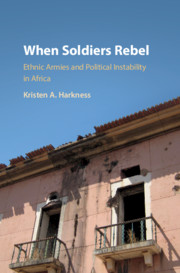 Coups have a nasty track record of prompting more coups. Transitional governments in Africa are still struggling with entrenched military privileges — and insurgent and extremist violence continues to proliferate, the University of St. Andrews’ Kristen A. Harkness writes for The Post’s Monkey Cage:
Coups have a nasty track record of prompting more coups. Transitional governments in Africa are still struggling with entrenched military privileges — and insurgent and extremist violence continues to proliferate, the University of St. Andrews’ Kristen A. Harkness writes for The Post’s Monkey Cage:
The Central African Republic and Ethiopia — two countries that appeared en route to democracy — now face major rebel offensives. There are even signs of civil-military strife in Nigeria, with insurrections flaring across the country. In early 2021, President Muhammadu Buhari “shuffled” top military leaders. In May, he alleged a coup plot.
These types of rumblings may foreshadow more coups. It’s possible that Africa’s coup epidemic is only beginning, adds Harkness, the author of “When Soldiers Rebel: Ethnic Armies and Political Instability in Africa” (Cambridge University Press, 2018).
But despite these set-backs, Africa can and does reap a democratic dividend, analysts Leonard Mbulle-Nziege and Nic Cheeseman wrote this week.
Widespread corruption is also facilitating coups by undermining rulers’ legitimacy, other observers suggest. A recent analysis cites National Endowment for Democracy (NED) partner Afrobarometer’s surveys across 19 African countries which show 6 in 10 respondents saying corruption is increasing in their country, while 2 in 3 say their governments are doing a poor job fighting it.







